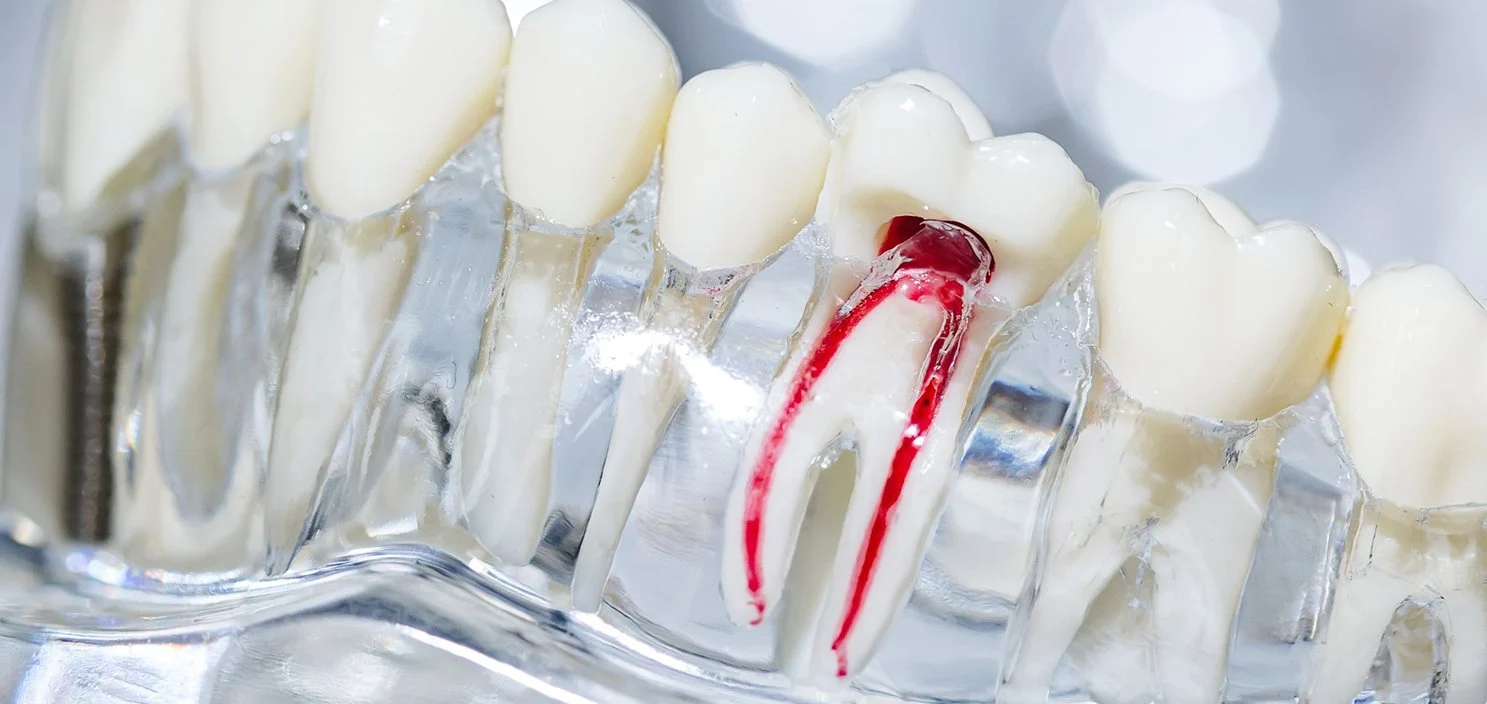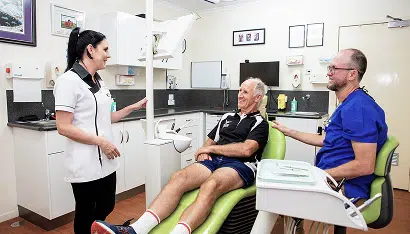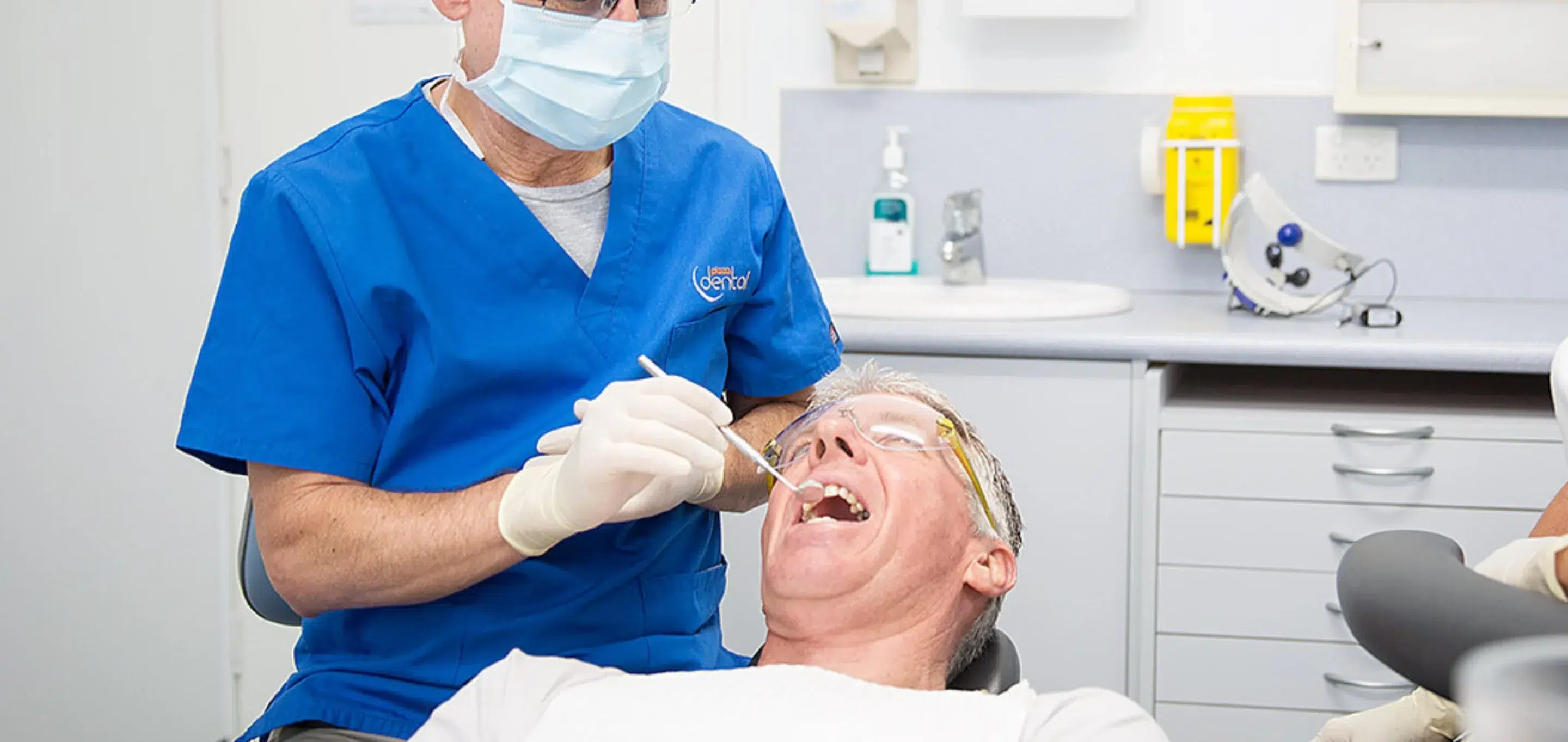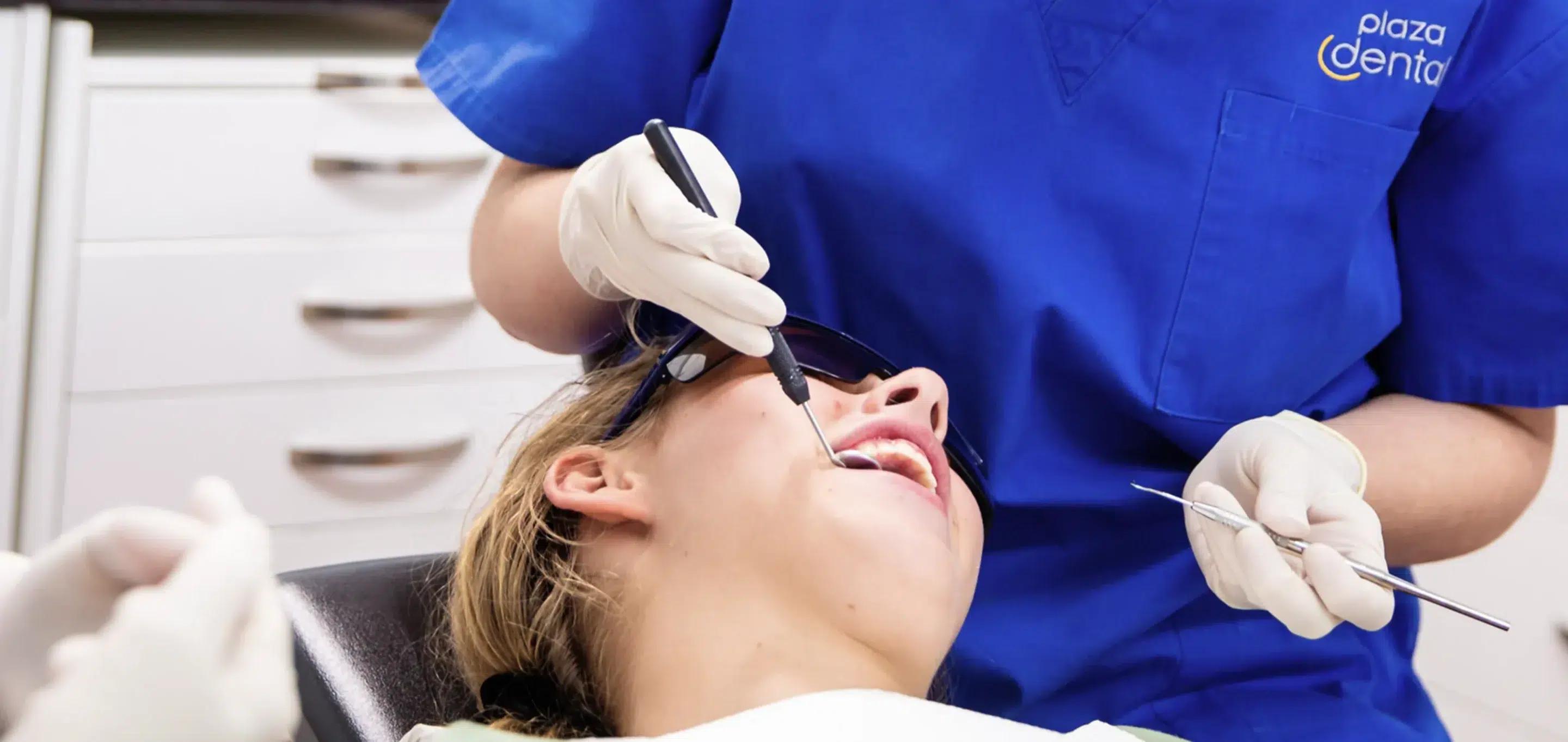What is Root Canal Therapy and why is it needed?
Root canal therapy is a treatment used to save a tooth when the inner pulp, which contains nerves, blood vessels, and connective tissue, becomes infected or inflamed due to decay, trauma, or repeated dental work. If left untreated, the infection can spread and cause pain, swelling, abscesses, or even tooth loss. The procedure involves removing the damaged pulp, thoroughly cleaning and sealing the inside of the tooth to prevent reinfection. This allows you to keep your natural tooth while preserving your bite and jaw structure. At Plaza Dental, we use modern techniques and a gentle approach to ensure your experience is as comfortable and stress-free as possible.
When might root canal therapy help?
Root canal therapy can sound intimidating, but in many cases, it’s the best way to relieve discomfort and preserve your natural tooth. If you’ve been dealing with ongoing pain or changes in how your tooth feels or looks, it could be a sign that something deeper is going on inside the tooth. Here’s what to look out for:
- Persistent toothache or sharp pain when chewing
- Sensitivity to hot or cold that lingers
- Swelling or tenderness in the gums
- A darkened or discoloured tooth
- A dental abscess (pimple-like swelling on the gum)
- A cracked or traumatised tooth
If you’re noticing any of these signs, we’ll carry out a gentle, thorough assessment to get to the root of the problem. At Plaza Dental, we’ll always take the time to explain your options, answer your questions, and guide you toward a treatment that feels right for your health and your lifestyle.
From painful tooth to healthy smile
Your initial consultation
We will begin by listening to your concerns and performing a careful assessment, including digital x-rays, to locate the problem and confirm if a root canal is necessary. We will talk you through the process and make sure you feel comfortable with the plan.
Cleaning and sealing the tooth
During the root canal treatment, we will gently remove the damaged or infected pulp. The inside of the tooth will then be cleaned, disinfected, and sealed to prevent bacteria from entering again. This step helps relieve pain and save the natural tooth.
Restoring the tooth
After the root canal, we will often recommend placing a dental crown to protect and strengthen the tooth. This helps restore the tooth’s full function and appearance, allowing you to chew, smile, and speak comfortably again.
Aftercare and support
We will guide you through the healing process and provide tips on caring for your restored tooth. Our team will continue to monitor your tooth during your regular dental visits to ensure everything stays healthy.
By the end of your treatment, you will be able to enjoy your smile again without the discomfort that brought you in.
Frequently asked questions
What happens if I delay or avoid root canal therapy?
Delaying root canal treatment can cause the infection to worsen, leading to severe pain, swelling, and, in some cases, the loss of the tooth entirely. Infections left untreated can also spread to other areas, potentially causing more serious health concerns. The sooner you seek treatment, the simpler and more comfortable the process tends to be.
Is a root canal always the only option for a badly damaged tooth?
Not always. Sometimes, if the tooth is too damaged or brittle, other options like extraction and replacement may be recommended. However, we will always prioritise saving your natural tooth whenever it is possible and beneficial for your long-term oral health. We will talk through all your options with you before any treatment is decided.
What if I had a root canal years ago and the tooth is hurting again?
It is possible for a previously treated tooth to develop new problems, especially if the tooth was not fully sealed or protected with a crown. This does not always mean you will lose the tooth. We may recommend a re-treatment or another solution depending on the situation. If you are noticing pain in a tooth that has had a root canal before, it is worth having it checked as soon as possible.
Why Mackay families choose Plaza Dental
A legacy of care
Founded in 1984, Plaza Dental began as a convenient branch for patients north of the Pioneer River and has served the Mt Pleasant community ever since.
More than 125 clinical years of experience
What started as a small practice has grown into a thriving team of 6 dentists, an Oral Health Therapist, and support staff, delivering care in a modern, friendly environment.
Prevention comes first
We believe in stopping problems before they start. Our focus on prevention helps patients protect their smiles for life.
Restoring long-term health
For patients with complex dental histories, our experienced team is here to restore health and help maintain it long term.
Complete care
From preventive care to full-mouth rehabilitation, we offer a wide range of treatments under one roof—including implants, Invisalign, and oral surgery.
Experience you can trust
With decades of experience and a commitment to high standards, Plaza Dental continues to deliver personalised care tailored to every stage of your dental journey.
Flexible payment plans for the whole family
We offer flexible payment options to make caring for your smile simpler and more manageable, no matter which treatment you choose.
See other general treatments
Relief and protection for your smile
At Plaza Dental, we are here to make sure your root canal experience is as smooth and reassuring as possible. Our team will guide you through every step, from relieving your discomfort to protecting your tooth for the long term.
You absolutely do not have to put up with tooth pain. So, let us help you restore your oral health and enjoy smiling again!
Disclaimer: The material posted is for informational purposes only and is not intended to substitute for professional medical advice, diagnosis or treatment. Results vary with each patient. Any dental procedure carries risks and benefits. If you have any specific questions about any dental and/or medical matter, you should consult your dentist, physician or other professional healthcare providers.










